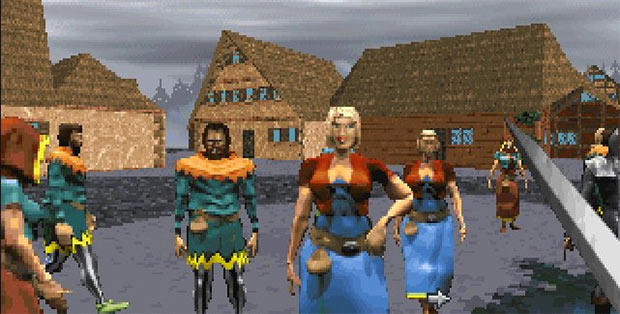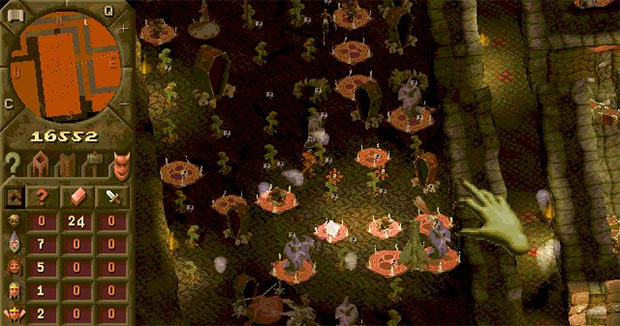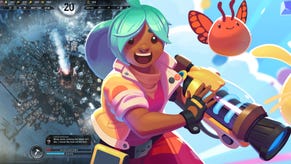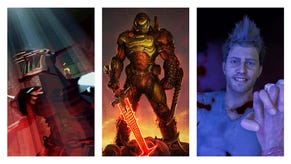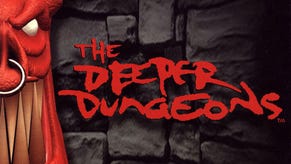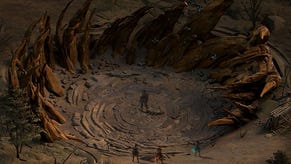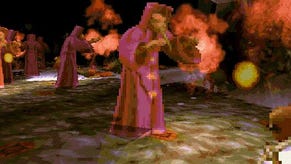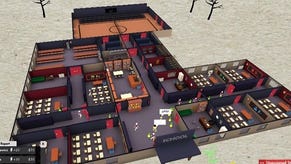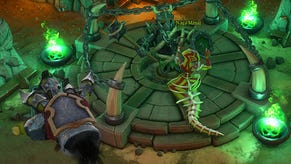Raised By Screens, Chapter 16: Dungeon Keeper
The dark ages
Raised By Screens is probably the closest I’ll ever get to a memoir – glancing back at the games I played as a child in the order in which I remember playing them, and focusing on how I remember them rather than what they truly were. There will be errors and there will be interpretations that are simply wrong, because that’s how memory works.
Time to fast-forward a little. I played many more games between 1994 and 1997, but they were primarily on classmates’ consoles. The family PC was rapidly showing its age and unable to play the games breathlessly promoted on the cover of PC Zone, my games mag of choice. Instead, I made do more with visits to Megadrive-owning friends’ houses and borrowed Gameboys and GameGears than I did with anything on the increasingly unusable family 486, but it never felt quite right.
The bright and childish worlds of Sonic and Mario, Megaman and Zelda mildly irritated me from the start, but Streets of Rage and Road Rash had the transgressive edge I craved, Mortal Kombat’s gruesomeness was irresistible, and licensed drek like Robocop vs Terminator and X-Men fed my frighteningly fast-growing love of action sci-fi. One kid even managed to get a SEGA Mega CD for his birthday (“I’m a jammy bastard” he’d say repeatedly, with a mile-wide smile) and gathered us around to witness Night Trap, his ultra-Christian, staunchly Conservative parents having no idea that we were playing anything more lurid than Tetris. Somehow, we treated the preposterous and irritating game of CCTV voyeurism entirely seriously, even treating scanning urgently for a fleeting, pixellated glimpse of frilly bra with the same solemnity as beating its awful guesswork puzzles.
But these borrowed experiences were mere tourism. I knew that. Maybe all those things (Night Trap excepted) would have felt less throwaway if I’d had a console of my own in the house, but even so, there was something about the PC that felt right, that felt natural. I’d been raised on Spectrums and BBC Micros, so perhaps that was a foregone conclusion, but my tendency towards introversion was more than apparent by that point too.
The fact I’d mastered its many and seemingly arbitrary controls, the fact that simply getting a game to run well involved, by that point, years of expertise, and most of all the fact that I disappeared into much more of a private space rather than ostentatiously played in one which anyone passing could see, and thus interrupt. A console was a park bench, a PC was a dungeon. I often hated being alone, but more often I wanted to be alone.
A birthday came, university loomed, a new PC arrived in response to my earnest pleas concerning essay-writing. It had an AMD K6 CPU, so much more affordable than the Intel Pentiums of the time, which was perhaps the sole reason I could receive such a gift, and I remember being astounded by its six Gigabyte hard drive. My mind turned to games almost immediately, but at that point I was out of the loop. The age of our 486 and a couple of years in which my attention was almost entirely given to Britpop bands and mostly unsuccessful attempts to have a drinking-centric social life left me with very little idea what was going on in PC gaming.
1995 and 1996 were my dark ages: I missed out on the end of Lucasarts’ imperial phase in Full Throttle and The Dig, I wasn’t there when Daggerfall saw The Elder Scrolls stake its roleplaying claim, I had no idea there’d been a Civilization II, Duke Nukem 3D was a whisper on the wind and even X-COM: Terror From The Deep I only experienced on a neighbour’s PC during a week of house-sitting for them.
Some of these games I have since revisited, and almost every time the result has been to make me doubt my own nostalgia. They aren’t far flung from games I did and do love, yet I can’t quite attach to them. They feel dated or they feel ordinary. Because they weren’t my games at the time their spell didn’t seem to work years later – so, surely, the same is true of my games when experienced by others for the first time. All of us incline towards believing our own subjectivity is objectivity, and it is frightening to occasionally meet proof that this is not the case.
So when I praise 1997’s monster lair simulator Dungeon Keeper for being my way back into PC gaming, and hail its convergence of construction, statistics and action as a definitive statement of what PC gaming is, my statements may well be meaningless. What I can safely say is that, on a purely personal level, it was the right game at the right time. Or perhaps the worst game at the worst time.
School was out forever, university wouldn’t begin until September, and so I was adrift in the summer of 1997. I would go to my first festival, take on my first part-time job and make my first awkward (and failed) attempt to court a girl, so it was a momentous season too, but day-to-day those three months were listless and anxious. The world stopped turning for me. I had no purpose, few friends, not even the mildest sense of what I might become. Lost. Alone in the dark (which, incidentally, I have never played).
So I reverted to my coping strategies of the early 90s. I needed a game, so I bought a games magazine. The next game from the creators of Theme Park was the current cause celebre, but it was a departure from the colour and fizz of those family-friendly management games. I wasn’t outwardly a goth because I didn’t (then) like the music, but most everything inside me was unconsciously following that archetype. The game’s themes of darkness and defanged evil resonated immediately: even the rapidly-dated yet bold cover cast a powerful spell. I bought it on the day of release.
In practice as well as marketing aesthetic, Dungeon Keeper ticked all the right boxes: the base-building and squad-management I’d loved in X-COM, the playful yet twisted fantasy themes of Warhammer (which I had dabbled in during ’95 and 96), the gently dark humour of my then TV favourite Red Dwarf, and most of all a balm for solitude. It was my pet dungeon, not a public stage: a dark little place to disappear into, a place I felt I belonged as I couldn’t find a way to join all those crowds out there in the sunlight. Dungeon Keeper was the perfect PC game, but it was also comfort blanket. It held me back at least as much as it helped me.
Even today, if I hear the lonely tap-tap-tap of an Imp digging through the darkness, or see its blank face and its expressionless but infinitely sad big black eyes, I feel a swell of indulgent pity. That poor, lost soul. Poor me, mining away on my own, locked away from the world. This was home, and this was prison. University was a frightening unknown, but it wasn’t difficult to imagine myself alone in a cupboard-sized room, digging through the darkness while the world laughed and partied and screwed and grew without me. At first, that very much proved to be true, and I sank lower still.
I love and admire Dungeon Keeper, and I still believe, nostalgia notwithstanding, that it is a joyful balancing act of sandbox and strategy, but I know now that it was the first time I knew depression, and sometimes I wonder if, after all these years, I should remove it from my life.
Is it at all healthy that I keep a copy of it, still wrapped in cellophane, in the cupboard? My own skeletons locked away, a seal to be broken in a personal emergency, a tangible reminder of a tormented boyhood? But then again, the next and final game in this series arrived during a darker hour still, and then proceeded to both transform my relationship with Dungeon Keeper and save my life.



